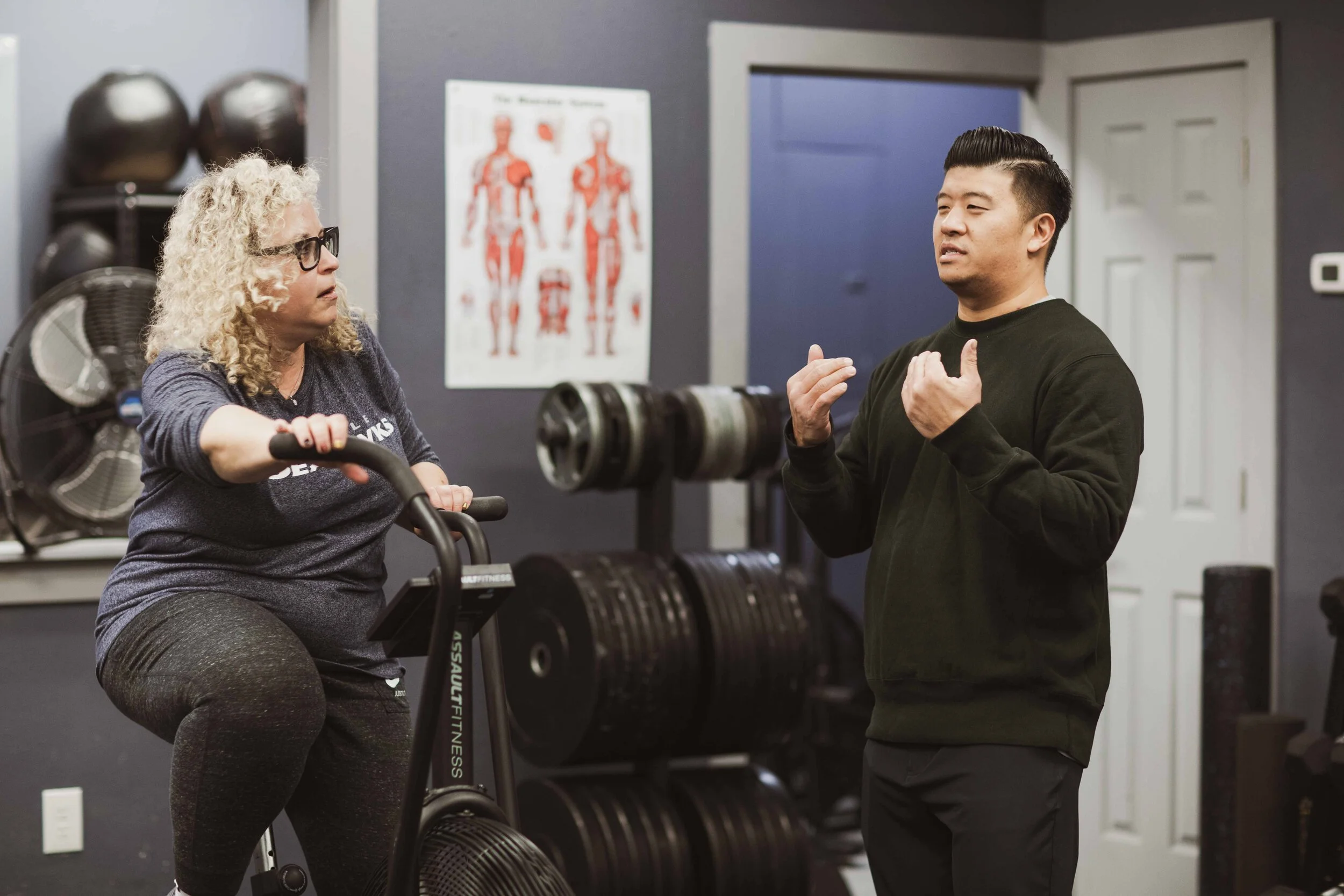WHAT TO DO WHEN YOU GET HURT
It happens. Regardless of your level of competition as an athlete, an injury is bound to happen at some point or another. Sometimes they have clear causes like fractures or muscle strains. Other times they sort of creep up on you slowly or just come from out of nowhere like back pain or knee pain. Despite the situation, injuries are frustrating and leave us confused about what to do next.
We totally get it. Your head is probably spinning with tons of questions.
Will I ever get better?
Will I have to stop playing (insert sport here)?
Will I need surgery?
Can I keep working out?
Here at Headquarters Physical Therapy we are committed to guiding you through your injury process with the best level of evidence available to healthcare providers. Here are the actions we would typically advise someone to take if they are facing an injury or a setback. (disclaimer: This advice should not replace the advice of your actual medical provider. We can only be responsible for the advice we give to our actual patients.)
1. Try to stay calm.
We’ve mentioned this before in our blog about low back pain. Our pain experiences are very sensitive to our current arousal states and fears. Rarely does an injury mean the end of it all, but the more you predict that “this is the end”, the less likely you may be to actually return to those activities that you love.
2. Reach out to a physical therapist that you trust.
Not all physical therapists are created equal. Physical therapy is a growing profession here in Portland, OR so your options of providers are countless. Ultimately, your physical therapist should be able to respond to all of your questions and concerns with honesty, logic, and a backing of evidence based principles. This isn’t to say that they need to throw piles of research papers at you, but they should be able to provide some scientific backing to their claims. The last thing you need in this process is to be grasping at straws. For more insight on how to find the right physical therapist you can reference our blog on that exact topic here.
As a quick tip, your physical therapist should focus more on things that you can do rather
than the things you can’t.
3. Communicate, communicate, communicate.
Bring ALL of your questions, fears, concerns, etc. to your physical therapist. It’s fairly common to see patients apologizing for not adhering to the rehab process, having questions or doubts, or still feeling like a quick fix exists for their situation. We pride ourselves on being educators first at HQPT and we welcome our patients bring all of those to the table. Truth be told, sometimes the most honest answer we can give to a question is “I don’t know, but I will try to find out.” It’s not the most attractive answer for a healthcare provider but we would rather look foolish than lie to a patient for the sake of a profit.
4. Be proactive
Lastly, and perhaps the most important step, is for you to take your own proactive role in the entire process. This is not to say that you should follow along blindly, but that there should be an understanding that your goals are achieved best by your own actions. And if this is a challenge then we take full responsibility that perhaps we have not help you set appropriate expectations or provide clear enough understanding of the process at hand.
If you are ready to make a change then we are here to help! If you are currently experiencing an injury, a setback, or even struggling to achieve a greater level of health and wellness please reach out to us. We promise to meet you where you’re at and give you the right tools to reach the next level. Just hit the contact buttons below and submit a form and one of our doctors of physical therapy will reach out to you!

